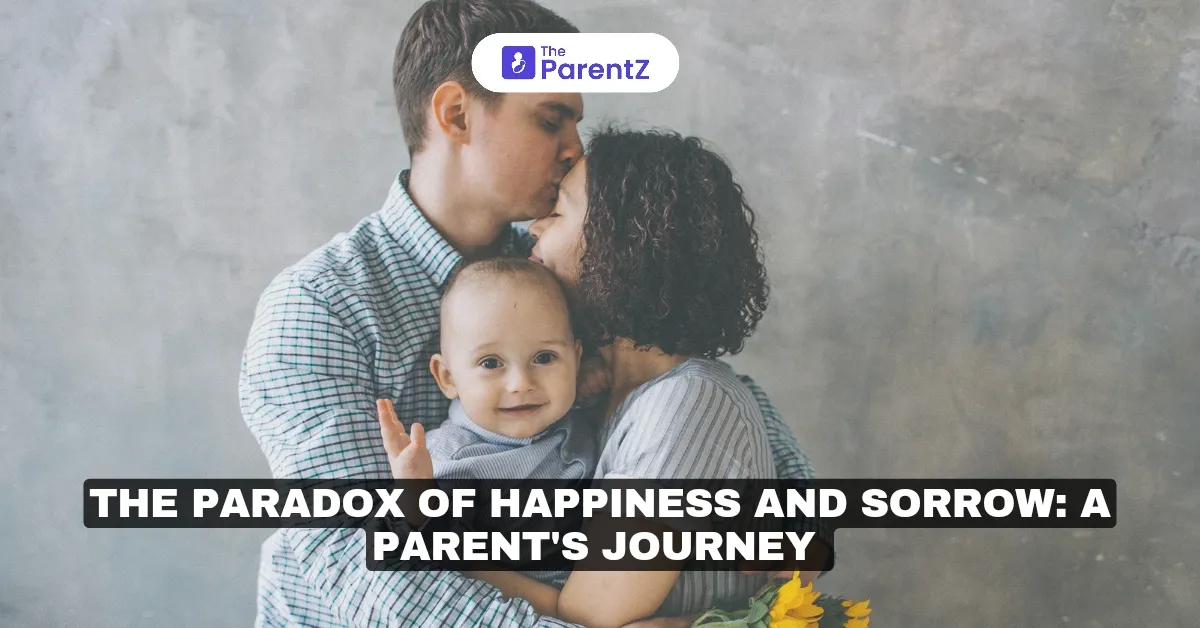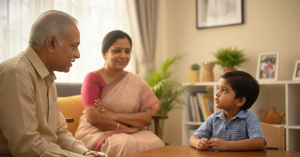Every parent knows the peculiar ache that comes with joy — that bittersweet mixture of pride and loss that colors so many of our parenting milestones. It's a feeling that's hard to explain to those who haven't experienced it: how your heart can simultaneously soar with happiness and sink with a gentle sorrow. This paradox is perhaps one of parenting's most beautiful mysteries.
First Steps, First Goodbyes
Remember those early days of teaching your little one to walk? There you were, holding those tiny hands, your back aching from bending over, encouraging each wobbly step. Then comes that magical moment — their first independent steps. Your heart swells with pride as they toddle away from you, and in that same breath, you feel a twinge of loss. Each step they take is a step away from needing you quite so much, a small declaration of independence.
Growing Independence, Growing Hearts
It starts with holding their head up — those early days when you support their delicate neck, helping them glimpse the world around them. You spend weeks encouraging this small victory, but when it happens, when those eyes begin to wander away from your face to explore their surroundings, there's that familiar mix of emotions. Pride in their growing strength, yet a whisper of nostalgia for the newborn who found their whole world in your face.
The Learning Curve of Letting Go
As parents, we live in this beautiful contradiction: everything we do is aimed at making our children independent, yet every achievement of independence tugs at our hearts. We teach them to feed themselves, dress themselves, tie their shoes — each skill a small step toward their self-sufficiency. And while we celebrate these victories, we also quietly treasure those moments when they still reach for our help, knowing they grow fewer with each passing day.
Milestones and Memories
Every milestone carries this duality. Their first day at school — you beam with pride seeing them walk into their classroom, then sit in your car fighting back tears. Their first sleepover — you're happy, they're building friendships while checking your phone every hour. Their first solo bike ride — your heart races with both excitement and anxiety as they pedal away.
The Art of Acceptance
This is where the wisdom lies — in understanding that these conflicting emotions aren't a sign of weakness or confusion but rather the very essence of parental love. It's okay to feel both joy and sorrow. It's normal to want to hold on while knowing you must let go. These feelings don't contradict each other; they complement each other, creating a beautiful collage of the parenting experience.
Cherishing the Journey
As Robert Frost reminded us, there are "miles to go before I sleep." The parenting journey is long, and each phase brings its own unique blend of happiness and heartache. The key isn't to resist these feelings but to embrace them, understanding that they're both natural and necessary parts of the journey.
While our children grow more independent each day, they're not really growing away from us – they're growing into the people we've helped them become. Each new skill, each step toward independence, is a testament to the love and guidance we've provided. Yes, they may need us less in some ways, but they'll always need us differently.
The Continuous Evolution
Remember that your role isn't diminishing – it's evolving. As your children grow, you're not becoming less of a parent; you're becoming a different kind of parent. The hands that once helped them take their first steps will be the same hands they reach for when they need guidance navigating life's bigger challenges.
Conclusion
So, to all parents navigating this emotional rollercoaster: your feelings are valid. That mixture of pride and wistfulness, joy and gentle sorrow – it's all part of the beautiful, complex journey of parenthood. Let yourself feel it all. Celebrate their victories while honoring your emotions. Be proud of how far they've come, and how far you've come as a parent.
For in this paradox lies the truth of parenting: our greatest success comes in raising children who can walk away from us, secure in the knowledge that they can always walk back. And perhaps that's not really a paradox at all – it's just love in its purest, most selfless form.








Be the first one to comment on this story.